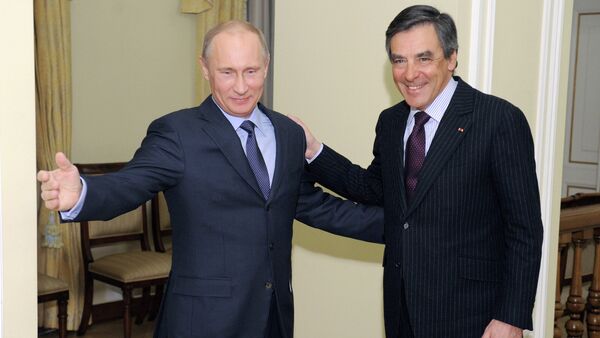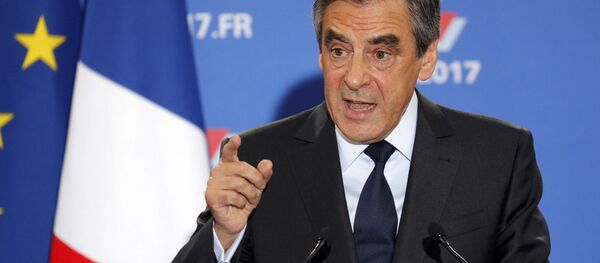“Trump or no Trump, Europe needs to build a defense system of its own,” the center-right presidential candidate, said in an interview with Le Monde.
François Fillon wants to make Europe less dependent on the United States and favors the idea of a European-Russian conference to discuss new security provisions in Europe.
When asked by Sputnik France how Fillon, who has criticized Donald Trump’s rhethoric as “very aggressive,” was going to reorganizeEuropean defense if he is elected in April, Alexandre Vautravers, a political expert with the Institute for European Security (IPSE) and the Geneva Center for Security Policy (GCSP), said that the idea of a European defense alliance was not new.
He added that all previous attempts to create an alternative to NATO had fallen flat.
“All those attempts by Paris and London and Paris and Berlin failed because you don’t need to have another NATO where the Americans call all the shots. You need to have something different with a different mandate. Unfortunately, all those projects snagged on Article 3 of the NATO Charter on collective security, whereby an attack on any NATO member-state is considered as an attack on all. I don’t think any defense treaty between France and Germany would go that far,” he noted.
Christophe Reveillard, an expert in modern history at Paris IV University, told Sputnik France that though still vague, [Fillon’s] project describes NATO as disoriented, poorly managed and inefficient.
What Fillon’s project is perfectly clear about, however, is the need to create a sort of a defense alliance with Russia.
“This is exactly what Russia has been asking for the past 30 years. Russia has always wanted to bring its European partners to the negotiating table to discuss a common security structure in Europe whose members would talk to it instead of plotting against it,” Christophe Reveillard observed.
“Fillon is the first European leader-to-be to articulate this idea loud and clear while, at the same time, maintaining close ties with Germany. Hopefully not with Angela Merkel,” he added.
Trump’s “America first” message outlined during his inaugural speech on Friday stirred uncertainty in capitals across Europe as it made clear that from now the on Europe will have to boost its military spending without relying entirely on Washington.
Never miss a story again — sign up to our Telegram channel and we'll keep you up to speed!




